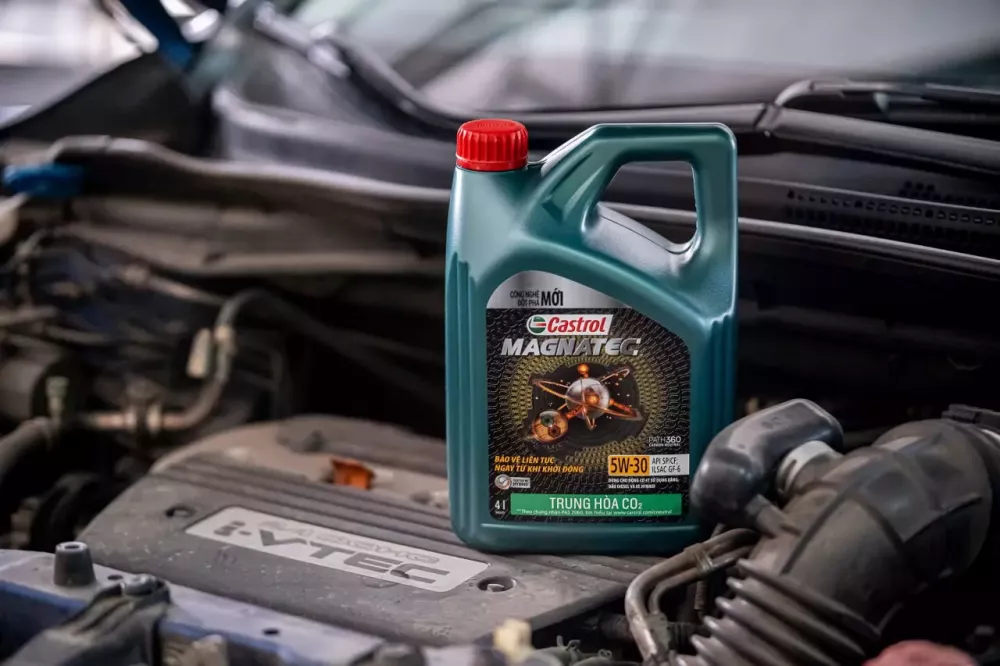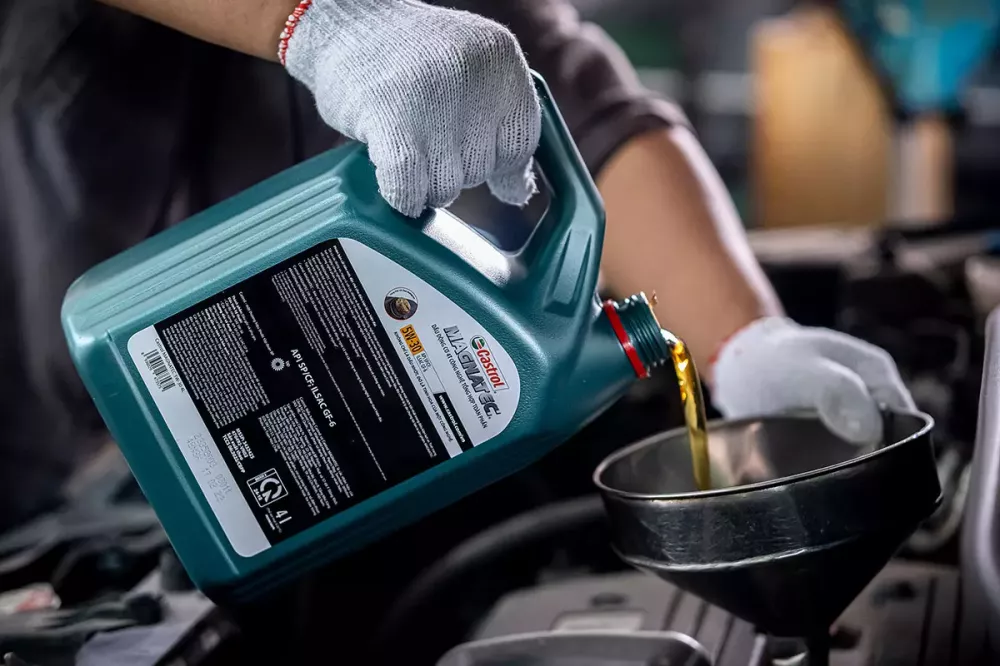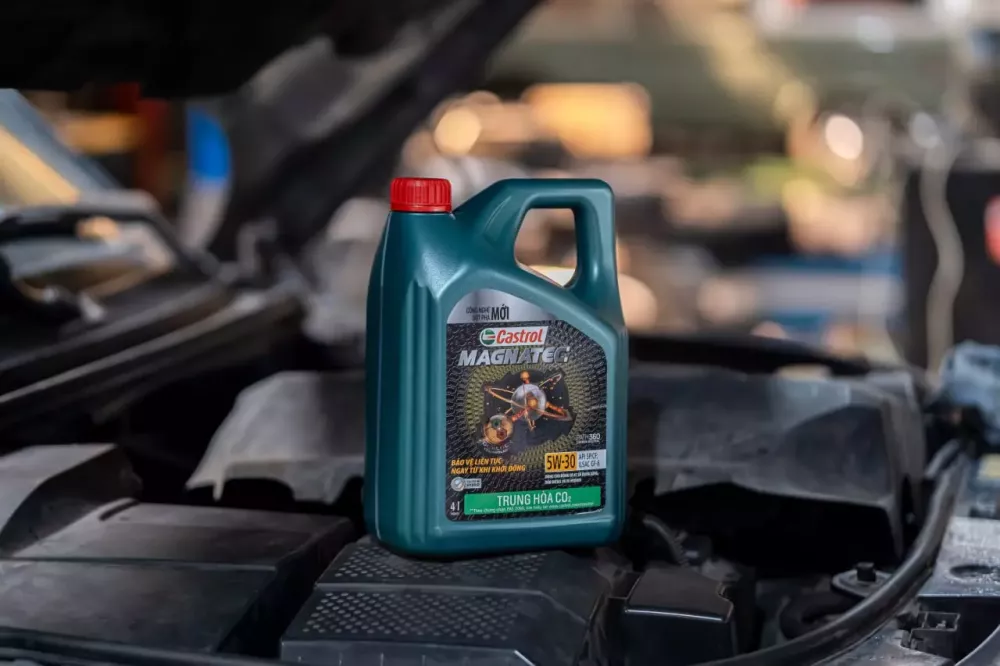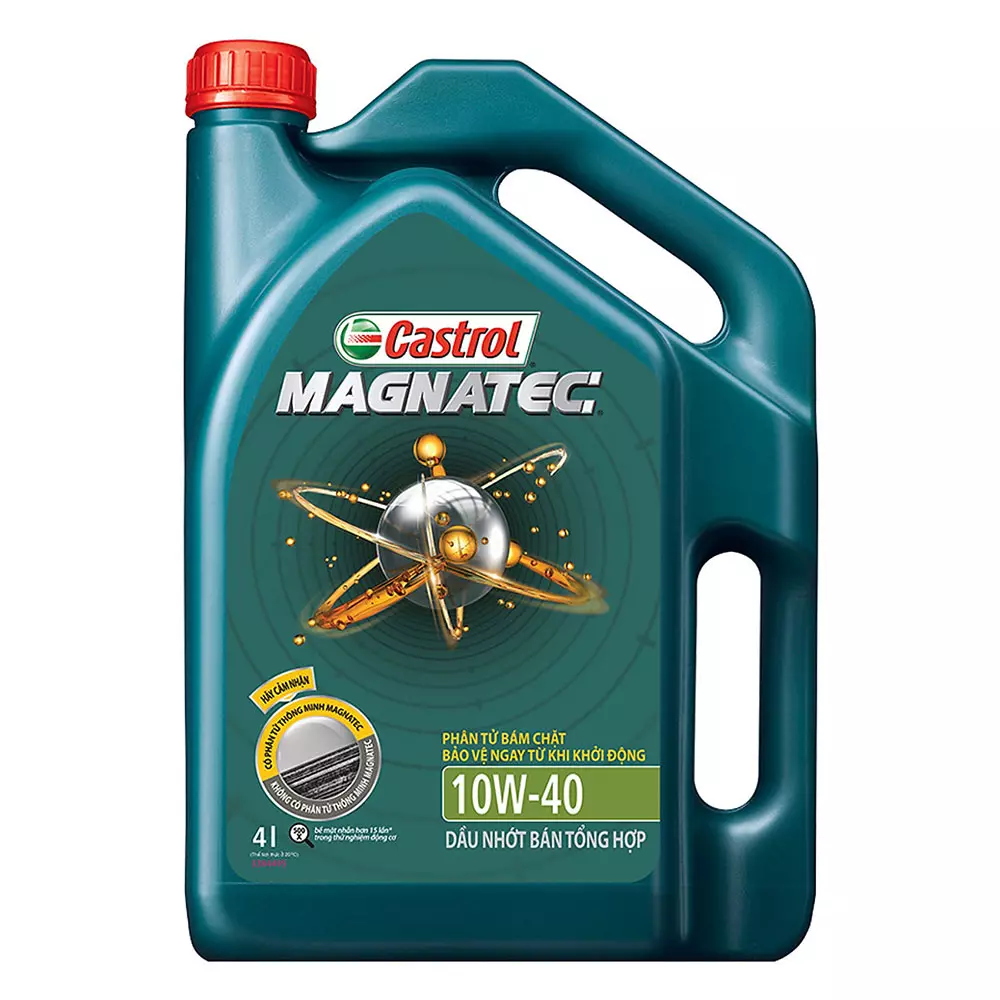For car owners in Vietnam, a car is more than just a means of transportation or a shelter from the rain and sun. It is also a valuable asset that requires careful maintenance to keep it running smoothly and minimize damage. One important aspect of car maintenance is changing the engine oil.
Although changing engine oil may seem simple, not every car owner does it correctly. Many car owners still hold misconceptions about engine oil, such as believing that the more expensive the oil, the better it is, or that they don’t need to change the oil regularly if their car is not frequently used. These misconceptions not only waste money but can also lead to engine damage and expensive repairs. To avoid this, car owners should be aware of the common misconceptions about engine oil.

The Price does not Determine the Quality
Car engine oil consists of base oil and additives. The additives give the oil its desired viscosity. Each type of oil has different levels of quality, which can affect the performance of the oil. While more expensive oils may have advanced technology and superior additives, it doesn’t mean they are suitable for every type of car.
When changing oil, car owners should consider the manufacturer’s recommendations, their car’s age, their economic conditions, and the purpose and conditions of car usage. The choice of engine oil should not solely depend on the price but also on the suitability for the car and its intended use.

Castrol MAGNATEC 5W-30 API SP is a fully synthetic oil that reduces wear and tear by up to 50% during warm-up and run-stop phases. It also helps save fuel in traffic conditions, making it well-suited for Vietnam’s traffic situation.
Thinner Oil does not Make the Car Run More Powerful
The numbers before the “W” on engine oil bottles represent the viscosity of the oil at startup temperature. Smaller numbers indicate thinner oil that flows more easily at startup. Thinner oil helps protect the engine by circulating quickly and reaching lubrication points faster. However, this does not mean that the car will run more powerfully.
Thick Oil can be Beneficial for Older Cars
Thick engine oil, such as SAE 50, may be difficult to start in low temperatures but helps maintain optimal engine temperature during continuous operation. Thick oil is not always harmful to the engine. For long-distance driving in hot weather or older cars with high mileage, thick engine oil can provide better protection.
Engine Oil is not Specific to Car Types
Engine oil is categorized based on composition and quality, not specific car types. It is divided into mineral base oil, high-quality mineral base oil, fully synthetic oil, semi-synthetic oil, and oil for cars with high mileage. Any type of car can use different types of engine oil. The belief that specific oil is only for specific car types is incorrect.
Less Driving does not Mean Less Frequent Oil Changes
Regardless of the distance driven, car owners should change the oil according to the manufacturer’s recommendations. When a car is not driven regularly, excess moisture accumulates in the engine, which can deteriorate the oil. Regular oil changes help maintain optimal lubrication and prevent unnecessary wear and engine damage.

Even for cars with less frequent use, regular oil changes are necessary to maintain oil quality.
Older Engines may Benefit from High-Quality Oil
Fully synthetic oil is refined to remove impurities and contains additives for better engine protection. Though fully synthetic oil is not necessary for all engines, it can be beneficial for older engines. Regular oil is still suitable for older cars.
Important Information about Engine Oil Changes
Car owners should be familiar with engine oil parameters, such as API performance grade, SAE viscosity grade, and the “W” symbol that indicates temperature range performance. These parameters help in choosing the right engine oil for the car.
API Performance Grade
The API performance grade denotes the quality of gasoline or diesel engine oil. The higher the letter after “S” or “C,” the better the quality. For example, API SC oil is of higher quality than API SA oil.
SAE Viscosity Grade
The SAE viscosity grade indicates the consistency or fluidity of engine oil. A higher number indicates thicker oil with better lubricating ability.
“W” Symbol
The “W” symbol represents the oil’s ability to start in cold weather. The number before the “W” indicates the temperature range at which the oil performs well. For example, SAE 5W-40 oil starts well at -15 degrees Celsius.
Common Engine Oils on the Market
The market offers various types of engine oil, including mineral base oil, high-quality mineral base oil, fully synthetic oil, semi-synthetic oil, and oil for cars with high mileage. Each type has its own characteristics and suits different cars.
Mineral Base Oil: The cheapest type of engine oil derived from crude oil. It is refined to remove impurities and blended with additives.
High-Quality Mineral Base Oil: Standard oil for new cars. It comes in different viscosity levels and is suitable for most light-duty car models.
Fully Synthetic Oil: Recommended for high-tech engines, luxury cars, or heavy loads. It has better flowability at low temperatures and maintains viscosity at high temperatures.

Semi-synthetic engine oil from Castrol
Semi-Synthetic Oil: A blend of fully synthetic oil and mineral base oil that provides protection under heavy loads and high temperatures.

Semi-synthetic engine oil from Castrol
Oil for Cars with High Mileage: Used for cars with mileages of 120,000 km or more. Contains additives to reduce oil leaks and protect older engines.
Engine Oil for Different Types of Cars
When choosing engine oil, it is important to follow the manufacturer’s recommendations. New cars should use thin oil, while old cars with high mileage may benefit from thicker oil. Luxury cars often require higher-grade oils for optimal performance.
Engine Oil for New Cars
New cars with small clearances are recommended to use thin oil for better penetration and lubrication. Thick oil can lead to inadequate lubrication and engine damage.
Engine Oil for Old Cars
Old cars with high mileage can benefit from thicker oil, such as 15W-40 or 20W-50, which provides better sealing and wear protection for older engines.
Engine Oil for Luxury Cars
Luxury cars have stricter requirements for lubricating oil due to their higher power and advanced technology. Higher-grade oils, such as fully synthetic oil, are often recommended for luxury cars.
Engine Oil Change Intervals
Oil change intervals depend on factors like manufacturer’s recommendations, oil type, operating conditions, and car age. Changing the oil every 3-6 months or after driving 3,000-5,000 kilometers is a general guideline. Regular oil changes help maintain optimal lubrication and extend engine life.
Car owners can refer to the information on the oil bottle for specific oil change intervals. Mineral base oil may require an oil change every 5,000 kilometers, while semi-synthetic oil may last 7,000-8,000 kilometers. Fully synthetic oil can last longer, around 10,000-15,000 kilometers.
The choice of oil and oil change interval depends on the car type, operating conditions, and personal preferences. For those unsure, Castrol MAGNATEC 5W-30 API SP is a recommended engine oil suitable for modern traffic environments in Vietnam.

Castrol MAGNATEC 5W-30 API SP with DUALOCK technology provides engine protection, even with modern start-stop technology.
Castrol MAGNATEC 5W-30 API SP is a fully synthetic oil with DUALOCK technology. It reduces wear and tear by up to 50% in both warm-up and run-stop phases while saving fuel in traffic conditions. It is suitable for Vietnam’s traffic situation. Castrol MAGNATEC 5W-30 API SP has been tested on hybrid cars, making it suitable for vehicles equipped with modern start-stop technology.















































